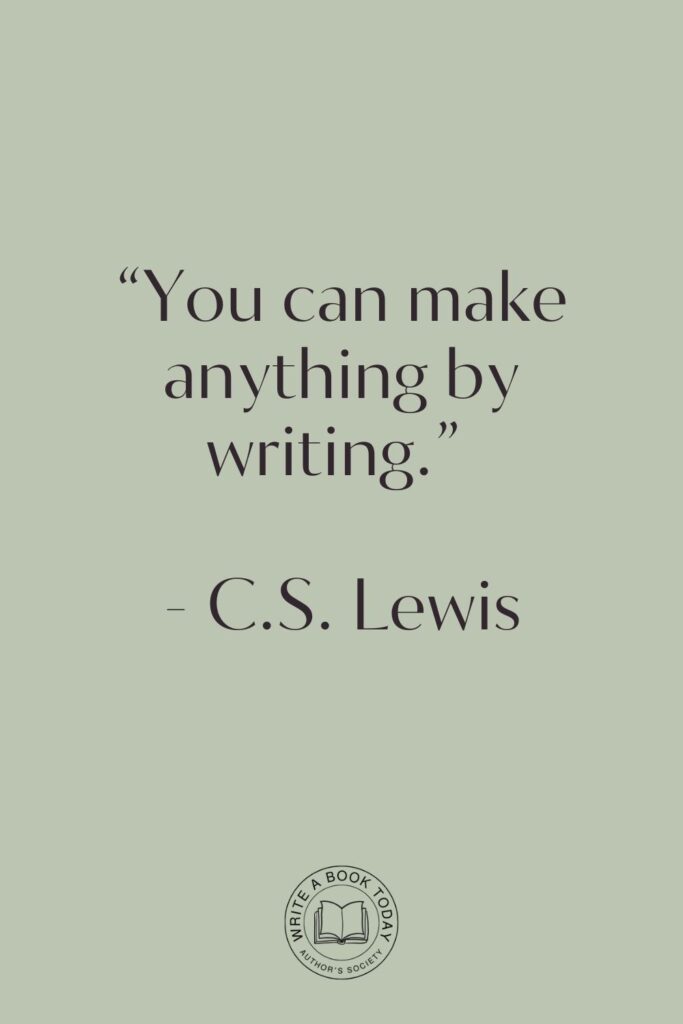Imagine holding your finished book in your hands just 30 days from now. Seems impossible?
Think again!
Many authors, including the likes of Fyodor Dostoyevsky and Jack Kerouac, have penned novels in less than a month.
This guide will show you how to embrace the challenge of writing a book in 30 days, turning what seems like a Herculean task into an achievable goal.
You’ll discover strategies, tips, and motivational insights that will help you transform your ideas into a completed manuscript in just one month.
Understanding the Challenge: Why Write a Book in 30 Days?
Writing a book in 30 days is more than just a sprint to the finish line; it’s an exhilarating journey that tests your creativity and discipline.
But why take on such a daunting challenge? For one, it pushes you to focus intensely on your writing, eliminating procrastination and self-doubt.
Moreover, rapid writing helps you capture the raw energy and emotion that often gets lost in prolonged projects.
Setting Realistic Goals and Expectations
Before you embark on this whirlwind writing adventure, it’s crucial to set realistic goals. Understand that the first draft is just that—a draft. It doesn’t have to be perfect.
Focus on getting your ideas down on paper without the pressure of perfectionism. This mindset will help you maintain momentum and avoid the pitfalls of writer’s block.
Remember, the aim is not to produce a polished masterpiece but to create a foundation you can refine later. Allow yourself the freedom to write imperfectly and revise with a clear mind once the challenge is complete.
The Benefits of Rapid Writing
Engaging in rapid writing offers numerous benefits. It helps you develop a daily writing habit, which is essential for any aspiring author.
The fast-paced nature of the challenge encourages spontaneity and creativity, allowing you to explore new ideas without overthinking. Additionally, the sense of accomplishment you gain from completing a book in 30 days can boost your confidence and motivation to tackle future projects.
Embrace the imperfections of your first draft. Rapid writing allows you to capture the essence of your story without the constraints of meticulous editing. You can always polish your manuscript later.

Creating Your Writing Plan
Having a well-structured writing plan is your roadmap to success. It provides clarity and direction, helping you stay on track throughout the month. Here’s how to create a solid plan:
Choosing Your Genre and Target Audience
Selecting a genre is the first step in your writing journey. Whether it’s fantasy, romance, or mystery, ensure it aligns with your interests and strengths.
Understanding your target audience is equally important, as it guides your tone, style, and content. Consider who will read your book and what they expect from your chosen genre.
Feeling lost with your debut novel?
Fiverr Pro connects you with expert editors, designers, and marketers – everything you need to get your book ready for success!

Developing a Strong Outline
An outline serves as the backbone of your book. It keeps your narrative focused and coherent, preventing you from straying off track.
Begin by jotting down your main ideas, then flesh them out into chapters. Don’t worry about sticking rigidly to your outline; allow room for creativity and spontaneity.
| Steps | Description |
|---|---|
| Step 1 | Choose your genre and audience. |
| Step 2 | Create a detailed outline. |
| Step 3 | Set daily writing goals. |
Establishing a Daily Writing Routine
Consistency is key when it comes to writing a book in 30 days. Establishing a daily routine helps you maintain focus and discipline, ensuring steady progress.
Finding Your Ideal Writing Environment
Your writing environment plays a crucial role in your productivity. Choose a space that minimizes distractions and inspires creativity. Whether it’s a quiet corner at home or a bustling coffee shop, find what works best for you and make it your dedicated writing sanctuary.

Time Management Tips for Busy Writers
Balancing writing with other commitments can be challenging. Implement time management techniques such as setting specific writing hours, breaking tasks into manageable chunks, and using tools like timers to keep you on track.
Prioritise your writing sessions and treat them as non-negotiable appointments.
Daily Writing Goals: How Many Words?
Setting a daily word count goal is essential to ensure you stay on target. Aim for around 1,667 words per day to reach 50,000 words by the end of the month. Adjust this number based on your schedule and writing speed, but maintain consistency.
- Start with a clear outline to guide your writing.
- Set realistic daily word count goals.
- Choose a writing environment that minimises distractions.
- Use time management techniques to balance writing with other commitments.
Maintaining Momentum Throughout the Month
As you progress through the month, keeping your momentum is crucial. Here are some strategies to help you stay motivated and overcome common challenges:
Google Docs is for notes. Scrivener is for novels. Upgrade your writing game and try it for free today!

Strategies for Overcoming Writer’s Block
Writer’s block can be a formidable adversary. Combat it by taking breaks, changing your environment, or engaging in creative exercises. Remember, it’s okay to write poorly at times—what matters is pushing through and maintaining your writing habit.
Celebrating Small Wins and Progress
Celebrate your achievements, no matter how small. Completing a chapter or reaching a word count milestone deserves recognition. Reward yourself with something enjoyable, like a favourite snack or a leisurely walk, to keep your spirits high and motivation intact.
Break down your writing sessions into smaller, manageable tasks. Completing these mini-goals will provide a sense of achievement and keep you motivated throughout the challenge.

The Importance of Accountability
Accountability is a powerful motivator. Sharing your goals with others creates a sense of responsibility and encourages you to stay committed.
Sharing Your Goals with Friends and Family
Let your friends and family know about your 30-day writing challenge. Their support and encouragement can boost your morale and help you stay on track. They might even offer valuable feedback or insights to enhance your writing.
Joining Writing Communities and Challenges
Connect with fellow writers through online communities or local writing groups. Participating in challenges like NaNoWriMo provides a sense of camaraderie and shared purpose. Engage in discussions, share your progress, and draw inspiration from others’ experiences.
The Writing Process: Drafting Your Manuscript
With your plan and routine in place, it’s time to dive into the actual writing process. Here are some techniques to enhance your creativity and productivity:
Writing Techniques to Enhance Creativity
Experiment with different writing techniques to keep your creativity flowing. Try freewriting, where you write continuously without worrying about grammar or structure. Alternatively, use prompts to spark new ideas and explore different narrative perspectives.

Editing and Revising Your Work
Once your manuscript is complete, it’s time to refine and polish your work. Effective editing and revision are crucial for transforming your draft into a cohesive and compelling story.
Tips for Effective Self-Editing
Approach self-editing with a critical eye. Focus on clarity, coherence, and consistency. Look for plot holes, character inconsistencies, and awkward phrasing. Don’t hesitate to cut unnecessary sections to improve the overall flow and impact of your story.
Seeking Feedback from Beta Readers
Beta readers provide valuable insights and perspectives on your manuscript. Choose individuals who are familiar with your genre and open to providing constructive feedback. Their input can highlight areas for improvement and help you refine your narrative.
Publishing Your Book: Next Steps
With a polished manuscript in hand, it’s time to explore publishing options. Whether you choose traditional publishing or self-publishing, understanding the process is essential.
No marketing platform? No social following? No problem!
Publisher Rocket helps you market your debut novel like a pro.
It’s a gamechanger for debut authors – try it today!


Traditional vs. Self-Publishing: Which Is Right for You?
Consider the pros and cons of traditional and self-publishing. Traditional publishing offers professional editing, marketing support, and distribution, but it can be competitive and time-consuming.
Self-publishing provides creative control and faster publication but requires you to handle all aspects of the process.
Marketing Your Book Effectively
Marketing is key to reaching your target audience and generating interest in your book.
Develop a comprehensive marketing strategy that includes social media promotion, book signings, and collaborations with bloggers and influencers. Engage with your audience and build a community around your work.
Research your publishing options thoroughly. Consider factors such as distribution channels, royalties, and marketing support to make an informed decision that aligns with your goals.
Final Thoughts: Embracing Your Writing Journey
Writing a book in 30 days is an ambitious but rewarding endeavour. It challenges you to push your creative boundaries, develop discipline, and embrace the joy of storytelling.
Remember, the journey doesn’t end with the completion of your manuscript. Continue refining your craft, exploring new ideas, and sharing your stories with the world. You’ve taken the first step in your writing adventure—now keep the momentum going and let your creativity soar!








